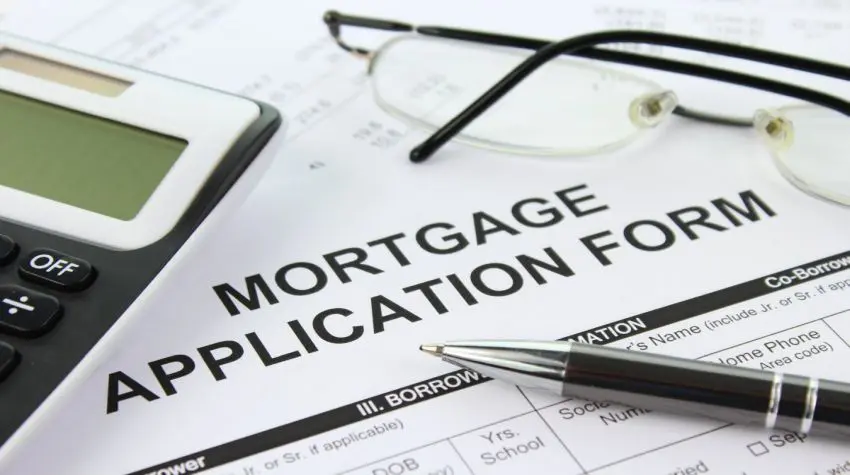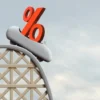
When shopping for a mortgage, it’s important to do your research. A mortgage is, after all, the biggest financial commitment most Canadians will ever make. So it’s no surprise that one of the first things prospective homebuyers do is to shop around for the best mortgage rate they can find. And while getting a great rate is important, if that’s your only focus, it could end up costing you.
Beyond the Rate – What to Look for in a Mortgage?
With so many banks and financial institutions vying for your business, mortgages these days come with a variety of options. In a way, shopping for a mortgage is like shopping for a new car. But you would never base your car buying decision on one single factor, would you? The same goes for your mortgage. Let’s take a look at some of the things you should look for in a mortgage, and why they’re important.
The Difference Between Mortgage Term & Amortization
Both the term and amortization of a mortgage refer to a period of time. The amortization of a mortgage represents the entire repayment period of the mortgage. In other words, the number of years before your mortgage will be paid in full. In Canada, the standard amortization period for most mortgages is 25 years, in fact, 25 years is the maximum amortization for any mortgage that is insured by the Canada Mortgage and Housing Corporation (CMHC). Conventional mortgages (non-CMHC) can often be stretched over 30 years.
Conventional vs Insured Mortgages (CMHC)
Whether your mortgage will be conventional or CMHC insured depends on the amount you have available for a down payment. To qualify for a conventional mortgage, you’ll need to provide at least 20% of the purchase price as a down payment. That can be difficult for many new homeowners, especially in expensive markets like Toronto, or Vancouver, which is why CMHC enables borrowers to obtain an insured mortgage with as little as 5% down.
The impact of CMHC premiums on the overall cost of a mortgage can be significant and should be considered when deciding how much mortgage you can afford. To illustrate the difference between conventional and CMHC, let’s assume the purchase of a $300,000 home:
Conventional Mortgage (20% down payment)
Purchase Price $300,000 – Down Payment $60,000 = Total Mortgage Amount $240,000
CMHC Insured Mortgage (5% down payment, with 4% CMHC)
Purchase Price $300,000 – Down Payment $15,000 + CMHC $11,400 = Total Mortgage Amount $296,400
In the first scenario, assuming a 25-year amortization, monthly payments, and an interest rate of 2.87%, your total cost to pay off the mortgage would be $335,952. Using the same criteria, the CMHC mortgage would cost over $414,000, a difference of almost $80,000. Of course, interest rates will change over the years, and there are other incidental costs not included here, such as the PST on the CMHC premium, but this gives you an idea of why getting the best interest rate shouldn’t be the only consideration when shopping for a mortgage.
Fixed Rate vs Variable Rate
One decision you’ll need to make is whether to go with a fixed or variable mortgage. With a fixed mortgage, the bank is guaranteeing you an interest rate that won’t change for the length of the term you choose. For example, if you went with a 5-year mortgage term, at a rate of 2.99%, you’d have the security knowing that your rate won’t change for the next 60 months. You have a peace of mind knowing that your mortgage payment amount also, won’t change.
With a variable rate, you’re choosing a floating rate that is tied to a benchmark rate, usually the Bank of Canada prime rate, or your bank’s prime rate, which may differ slightly. While fixed rates offer safety, and cost certainty, variable rates offer their own advantages. With a variable rate, you stand to benefit in a falling rate environment. If the Bank of Canada reduces the prime rate, your mortgage rate will drop accordingly. Not only that but if fixed rates drop, you usually have the option of switching into a lower fixed rate at any time. With a fixed rate, it’s much more difficult to get out of your existing term without paying a large penalty. The risk with a variable rate mortgage is that if rates increase sharply, you could find yourself in the precarious situation of having to increase your mortgage payment in order to keep up with the contractual amortization.
Open vs Closed Mortgage
Most borrowers will choose a closed mortgage, regardless of whether they’re going with a fixed or variable interest rate. The reason is simple: closed mortgage rates are lower. An open mortgage, on the other hand, is just as it sounds. The borrower has the option of breaking the term, or paying the mortgage in full, without incurring a penalty (in some cases, you may see an administration fee associated with breaking an open mortgage).
There are situations where it may be worth going with an open mortgage, even at a higher interest rate. For example, if you were planning to payout your mortgage in full in the near future, you would avoid the costly penalties associated with a closed mortgage. Potential scenarios would be if you were expecting a large inheritance, or if you were selling your home, with no intention of buying another one, or you were planning to rent a house or apartment instead.
Understanding Your Mortgage Prepayment Options
This is one that not a lot of people think about when shopping for a mortgage. Even if you go with a closed mortgage, most financial institutions will allow you to pay the mortgage down ahead of schedule, by providing the borrower with various prepayment options.
However, not all mortgages are created equal. In other words, the prepayment flexibility can vary greatly between mortgage providers. Some banks or credit unions will allow you make lump sum payments of 10% of the original mortgage amount each calendar year, others will allow 15%.
To use another example, both CIBC and TD Bank will allow you to increase your regular monthly principal and interest rates by double (100%) without any penalties, while other institutions will only allow you to increase your payment by 10-20%. If you have a lot of budget flexibility and plan to pay down your mortgage more quickly, the difference in policy could save you thousands. When shopping for a mortgage, make sure you understand the prepayment options that are offered.
Dealing with the Bank or a Mortgage Broker?
One of the decisions you’ll need to make when you begin your search for a mortgage is whether to go directly through your bank or deal with a mortgage broker. For years now, mortgage brokers have been a popular option, and represent a perfectly valid solution. A mortgage broker offers some key advantages. For starters, they deal with dozens of financial institutions, so they really are a great place to go, to source out the best mortgage rate.
If you’re not considered a strong borrower, perhaps your credit history isn’t great, a mortgage broker can find a financial institution that will be willing to take on your application. Generally speaking, Canada’s big six banks tend to be the most conservative when it comes to mortgage lending, so it can be tough to meet their criteria if your credit is less than stellar, or your employment situation is not standard. This is where a broker can add value.








